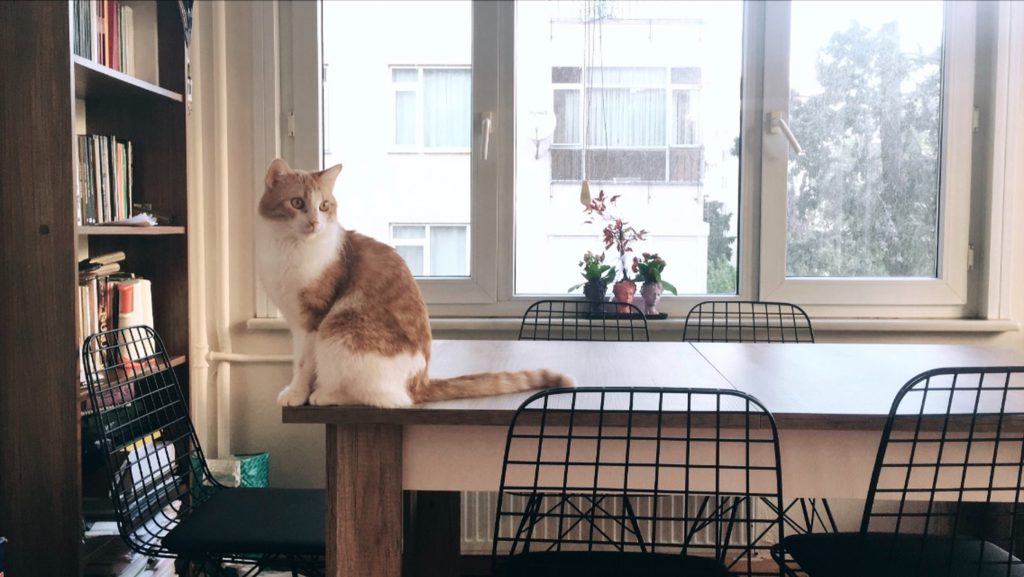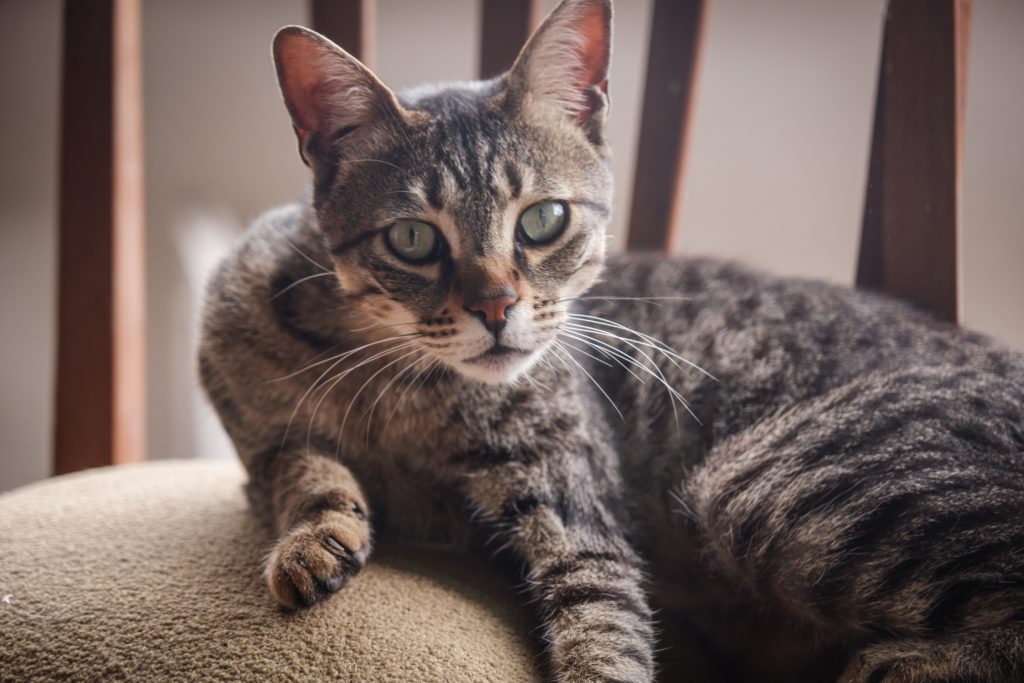If your cat stops touching her daily food and starts begging for treats instead, it’s high time to act. It is also a sign of addictive behaviour if your cat becomes aggressive towards you or even bites you just to get her treats. In this case, you should consider using a clicker or a whole food instead of treats as a reward.
Every cat owner knows the situation. The cat comes running and begs, scratches and meows loudly just to get a small treat from your hand. The fact that many then simply give in and give their cat something to nibble on in order to finally have some peace and quiet is somehow reminiscent of the behaviour of an overtaxed mother with her toddler.
Most people know that this is not the right solution for having some peace from the cat.
Cat treats should only be distributed to reinforce positive behaviour.
The constant craving for their favourite treat can, in the worst case, lead to a cycle of weight problems that are difficult to get back under control.
If you want to know if it’s harmful for your cat to only eat wet food, read our exciting article Cat only wants wet food, is it harmful?
How often should my cat get treats?
As a rule, cat treats should not make up more than 10% of your cat’s total diet. Also, pay attention to the portion sizes on the packaging materials and give significantly fewer treats to especially chubby or sick cats.

The most popular brands of cat treats have a recommended portion size for your cat in addition to the nutritional information. However, this also depends on the type of cat. An athletic and active cat can certainly tolerate a few more treats than a chubby sofa cat. The amounts given should be considered as the maximum you will give your cat in treats and should be reduced if your cat is a little chubbier or sick.
As a rule, cat treats should not make up more than 10% of your cat’s total diet.
A good time to give your cat treats is, for example, when your cat is displaying a newly learned behaviour or needs to take medication.
How can I tell if my cat is addicted to treats?
If your cat keeps meowing at you to beg for treats, ignoring her full food bowl, it’s time to react. Similarly, if your cat becomes aggressive towards you and tries to bite you because you won’t give her a treat, this is a clear warning that she is addicted to treats. Seek veterinary help.
Many cats love their treats and will pounce on them as soon as they leave your hand. However, this is not necessarily a reason for your cat to be addicted to the treats.

If your cat only wants to eat treats, you should change your feeding behaviour and seek veterinary advice.
If your cat doesn’t eat her food bowl or even ignores it and keeps begging you for treats, this is a first warning sign of addiction.
You should also be alert if your cat keeps meowing at you, getting louder and louder to reinforce the demand for a treat. It is important to remain consistent and ignore your cat. Giving your cat a treat in this situation would be the wrong signal and your cat will meow at you more often in the near future.
If your cat even becomes aggressive and tries to bite you because you don’t give him a treat, it is high time to do something. It’s best to seek veterinary advice to combat your cat’s addiction.
What are the possible consequences of giving my cat too many treats?
Too many treats can have serious health consequences for your cat. These include diseases such as diabetes or arthritis.
Although cat treats are not necessarily good or bad for your cat, they are not meant to be a substitute for healthy, high-quality cat food. Both we humans and our feline companions should have a balanced diet with treats sprinkled in occasionally to ensure optimal health.
Obesity is a real health problem for indoor cats. Of course, this is not just due to treats or treat addiction.
Overfeeding can also be a problem because well-meaning owners do not know how to portion the food for their animal. Inactivity, which can be caused by a number of factors, also plays a significant role.
Cat treats can quickly cause obesity in your cat. This has very serious consequences for your cat’s health.
The following problems can occur with obesity in your cat caused by too many treats:
- Joint problems and even arthritis
- Feline diabetes
- Respiratory problems
- Significantly shortened lifespan
- High blood pressure
How can owners wean their cats off treat addiction?
In any case, you should avoid giving your cat treats as soon as he begs for them. Instead of treats, you could use a clicker or a whole food to reward your cat in certain situations. It is also a good idea to have an automatic feeder that only gives a few treats to your cat at a certain time of day.
The most important thing, if your cat is addicted to treats, is to remain consistent and not give him anything at all. You must remain strict, even if your cat begs you all the more.
Usually cats realise on their own that their begging is useless after several attempts and will go to their normal daily food.
An alternative to get rid of your cat’s constant nagging and begging is to give the treats via an automatic feeder. Certain models can be set up so that a small treat only comes out at certain times.
You can also try to give your cat treats only through certain educational toys. Here, your cat has to make a mental effort to get its reward.
Another solution to fight your cat’s addiction to treats would be to offer cooked whole foods with a high protein content, such as chicken or fish, in small portions instead of treats. The higher protein content and healthy fats nourish the body and your cat will feel fuller for longer, while also feeling like they’ve eaten something special.
Also, working with a clicker instead of reaching for the treats might help your cat break the addiction to treats. You can use the clicker over and over again as a reward whenever your cat exhibits certain behaviours.
Down below we have summarized our most popular posts for you in a great overview:
- Why do cats groom themselves after eating?
- Cat does not like treats
- How do cats cool off in the summer?
- How to keep ants out of the cat food
- Cat only wants to eat
- Do cats like it warm or cold?
- Is there food envy in cats
- How do cats cool off in the summer?
- How long does open wet cat food keep?
- Strange cat comes again and again
Summary – Is my cat addicted to treats?
If your cat stops touching her daily food to beg for treats instead, it’s high time to act. It is also a sign of addictive behaviour if your cat becomes aggressive towards you or even bites you just to get her treats. In this case, you should consider using a clicker or a whole food instead of treats as a reward.
Cat treats should generally not make up more than 10% of your cat’s total diet. Likewise, pay attention to the portion sizes on the packaging materials and give significantly fewer treats to especially plump or sick cats.
Too many treats can have serious health consequences for your cat. These include diseases such as diabetes or arthritis.

